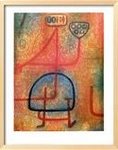Because my work concerns alphabetical letters, I must post this link to Bill Poser's post on Language Log, on Saudi Arabia's ban on the letter x.
English has its own checkered history of attempts to expunge particular characters from the alphabet. The first aspect of the language humanists attempt to reform, spelling forms the grounds of the sixteenth-century English standardization movement. In 1568, Sir Thomas Smith writes the following on the letter c:
Now tell me what you make of it. Does not this letter seem to be an Hermaphrodite, neither male nor female, and yet both and neuter, a monster among letters, not a letter; an example of ignorance, not art? For art is founded on certain rules and on the constancy of nature. But this c which we use, or rather abuse, in our common pronunciation of Latin, I know not what letter it is, nor what it is. For if s is a letter, and k is a letter, as the Latin alphabet (which you wish me to follow), shows; what force or power is left for this vagabond c, but to be a sort of monster or Hobgoblin, appearing now make, now female, now a serpent, now a crow? And by such willful impostures it is driving out both s and K from their houses and lands. So that these two letters might lawfully sue it under the edict Unde Vi, and I doubt not that if the Praetor be just, c will be easily convicted. What do you think?
And on the letter q:
I cannot understand what this letter means. For if we take k for the sound which when joined to a makes ka, and when joined to u makes ku, what is q doing, or what purpose does it serve? If I were the Prince of Grammarians, with authority to make eternal laws, valid throughout the whole world of Romans and Germans, I should cast out q as beggarly and intruding, and wrongfully and unnecessarily occupying the space of a real letter, and should command its exile far away; as Sarah did to Hagar and Ishmael as soon as Isaac began to grow strong. Q is really a slavish letter, deformed and decrepit, powerless without us as its staff, and with it no better than k. Do you think I am speaking my mind clearly? . . . I shall therefore soon make an end of this and other letters, and you shall at last be released and purged. So listen. Whatever q is like, we have it, always walking before its u like a proud maidservant.
Linguistically, or in principle, Smith objects to "superfluous letters," letters that represent sounds designated by other letters. As you can see here, however, Smith depicts superfluous letters' transgressions by way of the Old Testament (Saudi Arabia's ban is religious in basis) as well as other violations of social rule, be it gender (c is a hermaphrodite), status (the letters usurp others' rank), or property (they displace other letters from their rightful place).
Smith proposes a new English alphabet, one in which each individual letter corresponds to each and every individual sound, or phoneme, in English speech. Needless to say, Smith and the subsequent spelling reformers are unsuccessful in their bid to regulate English writing in this way. As we spell some words phonetically, some according to etymology or language of derivation, systemic variation remains a feature of English ortho-graphy, or "right writing."
We nonetheless owe to this footnote in the history of the English language -- a footnote I converted into a dissertation, and coming soon, a book! -- the first pedagogy developed to teach English (schoolmasters such as Richard Mulcaster propose teaching English as a subject of learning, versus rewriting the alphabet), the first dictionaries ("hard word lists" are initially published as spelling guides, to fix extant spellings in print), and the enduring notion that "spelling counts" -- not only as a (dubious) measure of language ability (my daughter has just started taking "spelling tests") but also a mark of one's advanced literacy, or place in lettered society. To be a "good" or a "bad speller" says something about you, something that may or may not square with how "well read" you are or your general facility with language.
In early modern English lit, the most explicit reference to the movement appears in King Lear, at the end of Kent's harangue to the impertinent servant Oswald, or one banished figure wishing to banish another: "Thou whoreson zed, thou unnecessary letter!" (2.2.64).
For those who are interested (what, you don't find it fascinating?! I know, I am the *closest of close readers), I've written at length on the recent bumper crop of spelling bee entertainments, and how they gesture to this peculiar chapter in English language history: here, in an online review of The 21st Annual Putnam County Spelling Bee, which supplies more of the history of the American spelling bee; and here, on Akeelah and the Bee, which asks why spelling, why now, in this era of standardized tests and No Child Left Behind.
And I am repeating myself utterly here, but must follow up that Language Log link with one to the Onion's report on the letter D, who pulls his sponsorship of Sesame Street when a new gay muppet, "Roger," joins the cast. It still cracks me up.
Tuesday, January 16, 2007
Superfluous Letters
Subscribe to:
Post Comments (Atom)



2 comments:
Perhaps it is precisely because the Q is unnecessary that it is beautiful.
colleen
Actually, colleen, Q is frequently -- one might say beautifully -- depicted as homoerotic! That is, it never goes anywhere without U at its tail . . . (Cf. Jeffrey Masten . . .)
Post a Comment